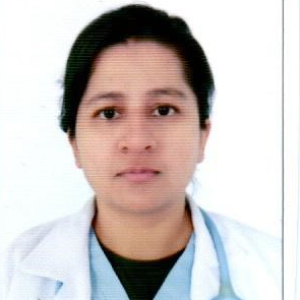Title : Takotsubo syndrome with underlying pheochromocytoma
Abstract:
A 63 year-old-man with an adrenal mass and no other medical history presented to the emergency department with central chest pain radiating to neck and 4-5 episodes of vomiting in the last 15 hours. His 12 lead ECG was performed which revealed normal sinus rhythm with ST segment elevations in leads V2 – V3, and initial laboratory workup revealed elevated cardiac enzymes, which suggested Acute Anterior Wall Myocardial Infarction. Patient was shifted directly to the cardiac catheterization lab for Emergency Primary Percutaneous Intervention for suspected acute myocardial infarction (MI). However, the procedure revealed normal coronary arteries. His Echocardiography showed a reduced ejection fraction of 45% with severe apical hypokinesis. The stressor precipitant was identified and he was diagnosed to have Takotsubo syndrome. The fluctuating blood pressure was controlled with glyceryl trinitrate infusion. Patient was discharged home on oral medications. Later his adrenalectomy was performed and the mass was identified to be a pheochromocytoma upon biopsy. After surgical resection, the patient’s ejection fraction improved back to normal and symptoms were resolved without medications.
Audience Takeaway:
- In patients presenting with typical chest pain with ST-elevation myocardial infarction and later revealing non-obstructive coronary arteries on angiography, alternative diagnosis of Takotsubo syndrome should be considered.
- Patients with history of adrenal mass and presenting with fluctuating blood pressure and typical chest pain are at increased risk of having Takotsubo syndrome.
- In above mentioned presentations, it is therefore, essential to think about pheochromocytoma-induced myocardial infarction at an early stage to reduce the risk of further myocardial damage and prompt removal of the causative factor.



